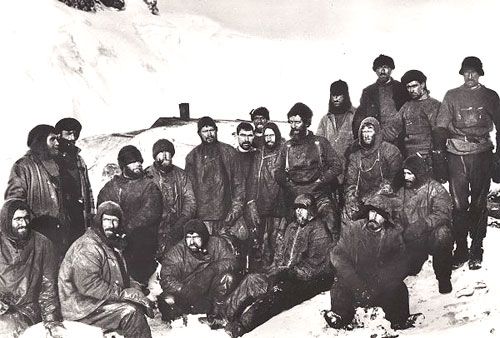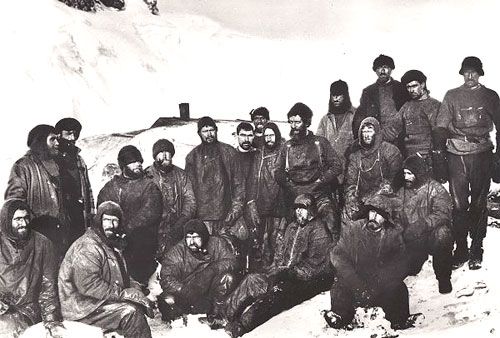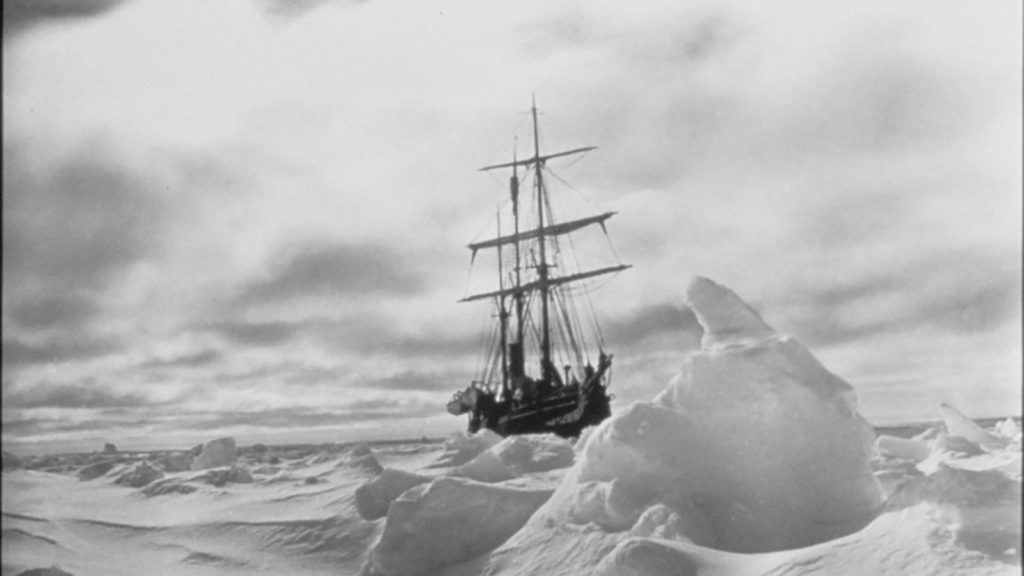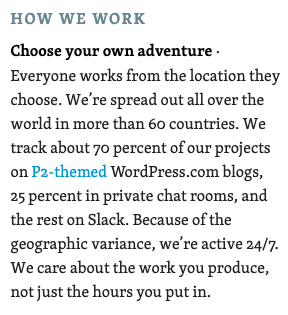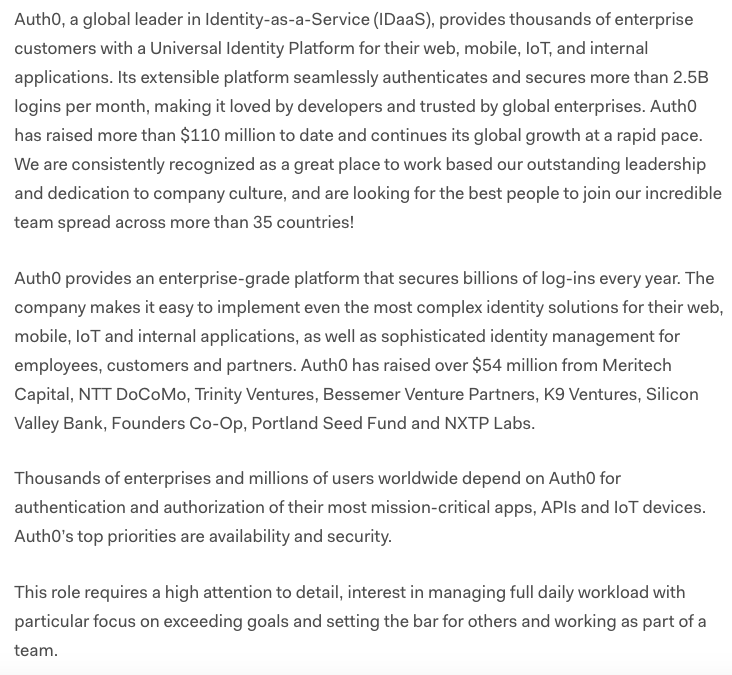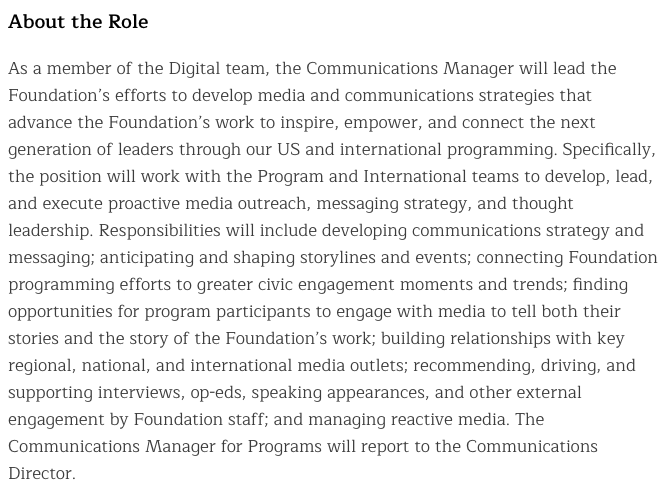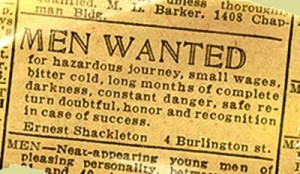This piece was originally published in 2015. It has been updated with new data and advice for 2023.
Here’s how the story usually goes. Sometime in the early 20th century, British explorer Ernest Shackleton needed to hire a crew for an upcoming expedition to the South Pole. So he placed a newspaper ad:
“Men wanted for hazardous journey. Low wages, bitter cold, long hours of complete darkness. Safe return doubtful. Honor and recognition in event of success.”
The copywriting — and its strong, direct language — has been printed, reprinted, and talked about for decades. It’s beautiful. Possibly the world’s greatest job ad.
Though his accomplishments went largely uncelebrated in the years after his death, Shackleton, in recent years, has become a revered leadership figure thanks to new literature on his life and career.
The Shackleton ad copy has taken on a life of its own, with hiring managers and entrepreneurs pointing to it as an example of how to lure exceptional people to your organization.
But there are two problems here. For one, the ad probably never existed. Even if it did, many people — it seems — are missing the point.
What’s in it for me?
Let’s break down this ad, line-by-line, and see what it’s really saying.
“Men wanted for hazardous journey.”
OK, so it’s unsafe. But a journey? That’s making the reader interested. That implies a destination and a mission.
Let’s keep reading.
“Low wages, bitter cold, long hours of complete darkness.”
Now we get an explanation of the hazards promised in line one. The reader gets a sense of what they’re in for.
“Safe return doubtful.”
Again, some brutal honesty about what’s possible. This is the part of the ad that weeds out people just looking for a safe day job.
“Honor and recognition in event of success.”
Bingo. Here’s the most important part. The promise of what will be offered in return. Because by this point in the ad, the reader is thinking, “OK, what’s in it for me?” Notice the ad doesn’t say “potential” or “likely” honor and recognition. It is promised.
Three parts to a great job posting
Looking at it this way, you can break the ad down into three parts.
Unfortunately, one key part of the Shackleton ad has been missing from a lot of job postings. Many, it appears, have taken the ad as license to write job postings that look like this:
“This is the hardest job you’ll ever have. You’ll work 14 hours a day and be on call all night. Your managers will be demanding and ruthless. Must be able to juggle multiple deadlines per day and handle irate clients.”
See the problem here? They skipped steps one and three.
Someone might write this ad thinking they’re weeding out the people who aren’t cut out for the job. They filtered out the weak. And they have. The problem is they’ve also filtered out the good candidates. They didn’t promise anything in return. Their posting will go unanswered for weeks, and they’ll wonder why.
Compare this to a recent job posting for Palantir, a data analytics company and one of the highest-valued startups in the United States.
At Palantir, we develop the world’s leading products for data analysis and we deploy them against problems that truly matter—uncovering human trafficking rings, containing the spread of infectious diseases, combating fraud, stopping cyber attacks, protecting privacy and civil liberties, prosecuting complex financial crimes, providing relief to victims of natural disasters, and more.
Being a member of this team means being deeply involved in Palantir’s mission to continue the evolution of its technology and services. The candidate will have the power to make her mark and to make a real difference in the lives of her colleagues and long-term success of the business.
Only after this does the ad get into the nitty-gritty of the job’s technical responsibilities, i.e., its challenges. The ad essentially rearranges the Shackleton model. It starts with what the company’s mission is, why it’s important, and immediately goes on to explain how the candidate will be rewarded by helping make the world a better place. Only in step three are the technical challenges addressed.
Like the Shackleton ad, this ad promises something heroic. It delivers on the “what’s in it for me” question.
More iterations of the Shackleton ad in 2023
Here are three more versions of the Shackleton ad — job postings that convey:
- a destination and/or mission
- day-to-day tasks and potential difficulties
- the particular reward for navigating these challenges and achieving success
Here you go.
Automattic
Automattic is the company behind WordPress.com, WooCommerce, Jetpack, Simplenote, and several other popular platforms. They believe in making the web a better place and crafted their hiring page to reflect this. Below are key portions of the page.
Like the original Shackleton offer to work in Antarctica, Automattic weaves in potential challenges new employees will face (remote work, complex tools to track project progress, and 24/7 activity) — alongside the rewards (greater latitude to work and grow and a strong global community).
Auth0
Auth0 believes in making the web a safer place. The company focuses on innovative solutions to help their customers manage user identities — from employees to third parties to customers.
In this job posting for an Account Development Representative, Auth0 stacks the company’s mission and promise (the chance to be part of a high-growth, high-tech team doing critical work) up top. Below, it doesn’t shy away from the fact that they are looking for a high-performer — someone to not only hit but to exceed goals.
Auth0, like Shackleton, balances risks and rewards in creating a compelling job offer.
The Obama Foundation
Following the 2009-2017 presidency, Barack and Michelle Obama started The Obama Foundation to “inspire, empower, and connect people to change their world.” Here’s their job ad for a Communications Manager:
It’s clear that the day-to-day for the Communications Manager will be very busy and challenging. It’s also clear that she or he has the potential to create enormous positive social impact through the work. For the right candidate, this promise is worth the obstacles.
The ad that never was
As mentioned earlier, the Shackleton ad probably never existed. Nobody has been able to locate an original copy.
Bob Headland, curator of the Scott Polar Research Institute at the University of Cambridge, announced that he’s keeping a bottle of Madeira as a reward for anyone who can find a copy of the ad.
“This is a needle-in-a-haystack situation,” Headland said. “But I’m fairly convinced this haystack doesn’t have a needle in it.”
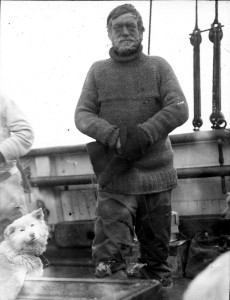
Headland and others have said they believe the ad first appeared in the 1949 book “The 100 Greatest Advertisements” and that the copy was penned by the book’s author Julian Watkins.
Regardless of the ad’s legitimacy, Sir Ernest Shackleton did convince thousands of Americans and others to apply for his Antarctic expedition, despite constant danger, small wages, and similarly small case of success. Perhaps the tale of all those applicants inspired someone to write the sort of ad that would inspire such a response. We may never know.
What we do know: People were excited to work on Shackleton’s dangerous expedition. Thousands applied, including Endurance captain Frank Worsley, who successfully made the cut. The Scott Polar Research Institute also uncovered one letter from three British women eager to join the expedition. They wrote:
“We have been reading all books and articles that have been written on dangerous expeditions by brave men to the Polar-regions, and we do not see why men should have all the glory, and women none, especially when there are women just as brave and capable as there are men.”
See a theme here? These women saw something they wanted. They wanted glory. And they were willing to buck the gender conventions of their day and put themselves in harm’s way to get it. Regardless of whether the Shackleton ad actually existed, somehow these women knew about the expedition. They knew it was dangerous, but they also knew it promised glory.
These women were daring and brave. Thankfully, people like them are still out there today. They are willing to work long hours and do whatever it takes to make your mission a success. You just have to know how to attract them. Start by promising something in return. Promise something great.
P.S. If you liked this article, you should subscribe to our newsletter. We’ll email you a daily blog post with actionable and unconventional advice on how to work better.

